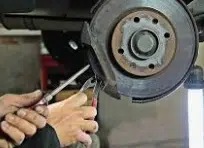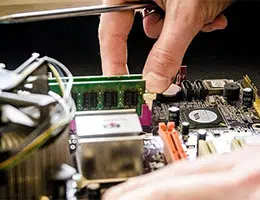 Maintenance is the act and result of maintaining or maintaining . This verb (maintain) has several uses: it can refer to sustaining or preserving something, to continuing with what is in progress or to solving material needs.
Maintenance is the act and result of maintaining or maintaining . This verb (maintain) has several uses: it can refer to sustaining or preserving something, to continuing with what is in progress or to solving material needs.
The concept is usually used with reference to the preventive and repair procedures that are carried out on buildings and machines so that they are in a condition to continue operating . Maintenance involves the preservation and restoration of items.
Preventive maintenance is called maintenance that is aimed at preserving facilities and mechanisms . For this, reviews are carried out on equipment that is in operation. The purpose of preventive maintenance is to minimize the risk of failure: this can be achieved by replacing parts that are worn, for example.
Corrective maintenance , meanwhile, is necessary when equipment does not work or does so incorrectly. In this context, the tasks aim to detect the problem and solve it through repair or correction.
Take the case of a computer (a computer). Preventive maintenance involves checking hardware and software while the computer is operating normally. This includes everything from cleaning the fans to deleting temporary system files. If the computer begins to fail (it works slowly or restarts itself, to name two possibilities), it will be essential to carry out corrective maintenance to search for and eliminate viruses, change hardware elements that are damaged, etc.
Preventive maintenance, in short, must be done periodically so that corrective maintenance is not unavoidable, which is usually more expensive and complex .
To carry out preventive maintenance on a device such as a computer, smartphone or tablet, we must think practically and adopt an attitude when using it that promotes proper functioning . We cannot expect our devices to respond optimally if we treat them carelessly.
 As mentioned in a previous paragraph, deleting temporary files is a practice that should become a habit for any PC and mobile device user. Operating systems accumulate this data each time they perform tasks such as installing a program or downloading updates; Furthermore, in the case of the Internet there are temporary files that speed up the loading of pages from the second time we visit them.
As mentioned in a previous paragraph, deleting temporary files is a practice that should become a habit for any PC and mobile device user. Operating systems accumulate this data each time they perform tasks such as installing a program or downloading updates; Furthermore, in the case of the Internet there are temporary files that speed up the loading of pages from the second time we visit them.
Since most temporary files are not used more than once, leaving them on disk indefinitely represents a waste of resources. Something similar happens with downloads executed by the user themselves: when they intend to install a program or add functionality to the operating system and directly obtain an executable file from the Internet, they allocate space in a directory for its storage. Once you use it, it is best to delete it, as it will probably become obsolete in a short time.
With respect to material maintenance, the fundamental point is the cleaning of the devices. In the case of phones and tablets, it is not possible to open them, but you can remove dust and stains from the screen and casing. The computer is a very different case: we must open it periodically, uninstall each component (graphics card, hard drives, fans, etc.) and do a thorough cleaning to remove dirt that could prevent proper cooling .
Another point to take into account in preventive maintenance is the ambient temperature and exposure to smoke: no matter how much we optimize disk space and clean the devices, if we do not use them in a conducive environment our efforts may be in vain.
